 At the start of 2018 I had a few writing goals: spend the first six months of the year writing short stories (hopefully about one a month) and the last six months working on my novel draft. I hoped I’d have half of my first draft done by 2019, but I knew these were very optimistic plans.
At the start of 2018 I had a few writing goals: spend the first six months of the year writing short stories (hopefully about one a month) and the last six months working on my novel draft. I hoped I’d have half of my first draft done by 2019, but I knew these were very optimistic plans.
Poems
I had two poems published! Which turned out to be my two publications for the year. I’m still enormously happy (and a little surprised, frankly) that every poem I’ve submitted to editors so far has been accepted for publication somewhere.
In February Only the Trees came out in Arsenika. I really love this indulgent love poem, because most of the poetry I’ve ever written was love poetry, unlike my fiction which has had a lot less romantic content. I’m so happy it found a home and people seemed to enjoy it.
In September Strange Horizons published Survival in Six Easy Steps, probably my most political poem so far and the one I’m still the most proud of. It’s hard to talk about, for me, because it just feels like the articulation of a truth that’s been with me and will stay with me for a long while if not the rest of my life.
Nonfiction
I told myself I was going to take it easy on the nonfiction this year and focus more on fiction, but of course ended up writing the same amount of articles as last year. /o\
The full list:
I do consider it the epitome of my ~personal brand~ that I wrote an article on how to worldbuild your fictional military correctly and an article on how Romance should be taken more seriously as SF/F within months of each other. It doesn’t get more me than that.
But I got to write for four different outlets this year! Three of them entirely new for me! It has been a struggle though, to sit on my hands and NOT pitch articles about things like “The Chilling Adventures of Sabrina”, or “Titans” or “She-Ra and the Princesses of Power” because I Do Not Have Time To Write More Articles.
Short Stories
I ended up writing three short stories in the first half of 2018, about 50% of my most optimistic estimate. One was accepted for publication and will be out next year, one is still making the rounds among various magazines, one is still unfinished.
In general, writing short stories is a really long, arduous process for me, something I kind of knew going into 2018, but was hoping to somehow improve at. No joke, a short story can take me about 8 months from conception to finished product, when a full edit of my nearly-novel-length novella took me two months.
At the end of September I was lucky enough to meet Ann Leckie, one of my favorite writers, at an SF/F con and even luckier to find myself sitting next to her at a dinner table. There were a few other writers present, and I shared my experience of short stories absolute torture for me, they took so long and I felt like producing publishable stuff was an endless process. And then Ann Leckie told me I should just forget about short stories and focus on my book instead.
For some reason having that affirmation from a writer I so deeply admire gave me some kind of mental push to just say, forget about short stories for a while, focus on the novel. Whenever my brain tries to tell me I’ll never amount to anything if I can’t even produce decent short stories I can tell it to shut up because Ann Leckie told me I was allowed to focus on other things, haha.
The Novel
Oh hey, I can update about this now! Me writing a novel is a real thing, not something that exists solely in my head! The working title is Empress of Ashes.
I spent November writing 50,000 words of my first draft (all of it will be scrapped for the second draft, but that was a given), ended up doing other things entirely in December, and am now going to get back to writing that last 30k in January! Every day we get ever closer to the magical moment when I can experience resounding rejection from agents and publishers about my very own novel!
What’s next?
What’s my writing wishlist for 2019?
If I’m very, very fortunate, I hope to have the second draft of the novel done by the end of the year, and maybe even be in the process of a third draft (out of, hopefully, no more than five, but who knows). I hope I can take time in between drafts to write at least one short story (plus finish the one I started this year).
It’s a lot of grunt work. I suspect I’ll have even fewer publication credits next year, compared to this year. But I knew this time had to come if I wanted any hope of publishing a book. So, here we go.
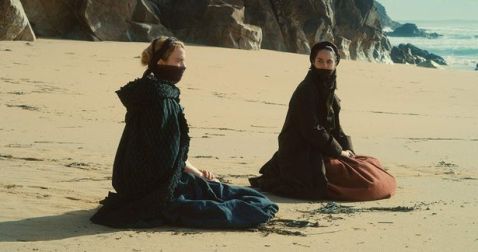 I had some thoughts about French director Céline Sciamma’s movie “Portrait of a Lady on Fire” and for once instead of trying to shop them around to publications thought I’d just put them here, for whoever might want to read them. The short version is: I liked this movie and it gave me thinky thoughts.
I had some thoughts about French director Céline Sciamma’s movie “Portrait of a Lady on Fire” and for once instead of trying to shop them around to publications thought I’d just put them here, for whoever might want to read them. The short version is: I liked this movie and it gave me thinky thoughts.
 At the start of 2018 I had a few writing goals: spend the first six months of the year writing short stories (hopefully about one a month) and the last six months working on my novel draft. I hoped I’d have half of my first draft done by 2019, but I knew these were very optimistic plans.
At the start of 2018 I had a few writing goals: spend the first six months of the year writing short stories (hopefully about one a month) and the last six months working on my novel draft. I hoped I’d have half of my first draft done by 2019, but I knew these were very optimistic plans.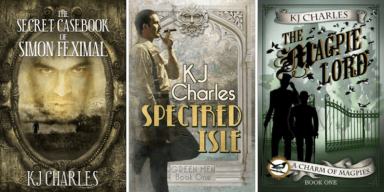 Hello friends! I’ve found that I usually write up to 4 non-fiction articles a year these days, that’s a number that seems to balance well with my fiction writing, but in 2018 I got to write 5! I pitched this article right before basically being away from my computer for a month, heard back from the (wonderful) editor while I was traveling in China, had to postpone writing it because of, among other things, a death in the family, and eventually ended up writing it in the middle of (successfully!) doing NaNoWriMo for the first time. So, it’s been eventful around these parts!
Hello friends! I’ve found that I usually write up to 4 non-fiction articles a year these days, that’s a number that seems to balance well with my fiction writing, but in 2018 I got to write 5! I pitched this article right before basically being away from my computer for a month, heard back from the (wonderful) editor while I was traveling in China, had to postpone writing it because of, among other things, a death in the family, and eventually ended up writing it in the middle of (successfully!) doing NaNoWriMo for the first time. So, it’s been eventful around these parts!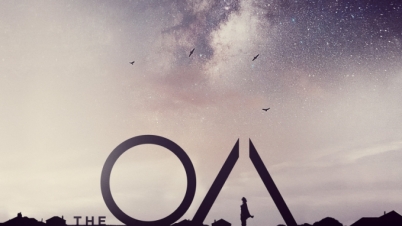
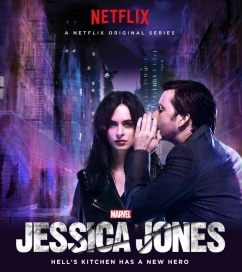
 I recently wrote a review of Zen Cho’s excellent debut novel “Sorcerer to the Crown”, for Strange Horizons.
I recently wrote a review of Zen Cho’s excellent debut novel “Sorcerer to the Crown”, for Strange Horizons.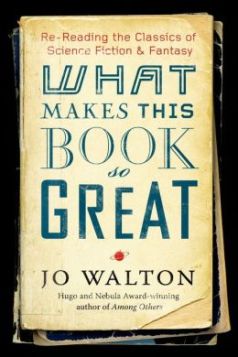 Jo Walton’s What Makes This Book So Great is a collection of essays, originally published as blog posts on Tor.com. Familiar with Walton’s fiction, I was drawn to review her collection of non-fiction essays partially because of what I’d heard of Walton’s reading habits and what she herself reveals at the beginning of the book—Walton chooses what books to read the way some people choose which ingredients to cook with, relying on a mix of old, trusted favorites and exciting, untested novelties.
Jo Walton’s What Makes This Book So Great is a collection of essays, originally published as blog posts on Tor.com. Familiar with Walton’s fiction, I was drawn to review her collection of non-fiction essays partially because of what I’d heard of Walton’s reading habits and what she herself reveals at the beginning of the book—Walton chooses what books to read the way some people choose which ingredients to cook with, relying on a mix of old, trusted favorites and exciting, untested novelties.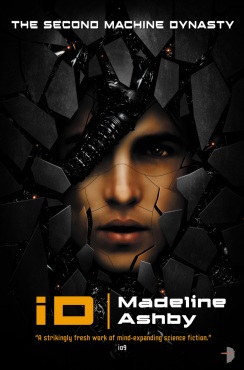 Ashby’s second novel, a sequel to her first, is engaging and better written than her debut, but it doesn’t address many of the flaws of the original. Ashby’s novels are set in a universe where humanity has created human-like robots, called “vN,” designed to carry out the tasks that human beings are no longer interested in undertaking. The technology was originally developed by New Eden, a cult that ostensibly wanted to create companions for all the sinners who would be left on Earth after Judgment Day.
Ashby’s second novel, a sequel to her first, is engaging and better written than her debut, but it doesn’t address many of the flaws of the original. Ashby’s novels are set in a universe where humanity has created human-like robots, called “vN,” designed to carry out the tasks that human beings are no longer interested in undertaking. The technology was originally developed by New Eden, a cult that ostensibly wanted to create companions for all the sinners who would be left on Earth after Judgment Day.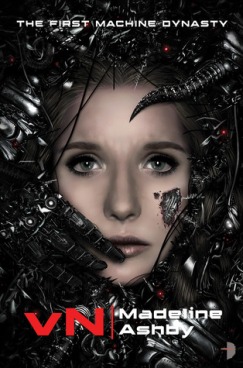 Madeline Ashby’s vN chronicles the life of Amy, a sentient vN-model robot born into a mixed robot-human family. Amy’s human father has slowed her rate of growth to that of a human child, in hopes of integrating her seamlessly into human society, but when Amy turns five her maternal grandmother, Portia (who is a perfect copy of Amy and her mother), shows up and tries to steal Amy away.
Madeline Ashby’s vN chronicles the life of Amy, a sentient vN-model robot born into a mixed robot-human family. Amy’s human father has slowed her rate of growth to that of a human child, in hopes of integrating her seamlessly into human society, but when Amy turns five her maternal grandmother, Portia (who is a perfect copy of Amy and her mother), shows up and tries to steal Amy away.